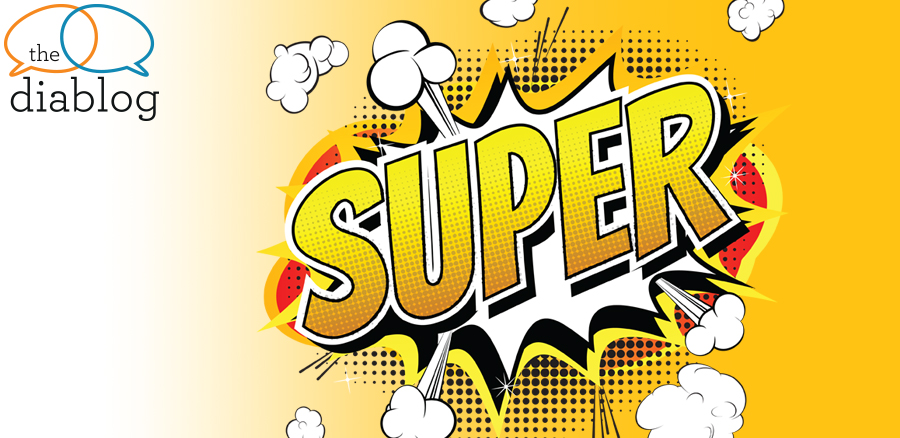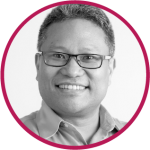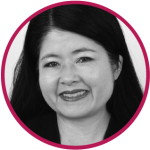
 By Pon Angara & Patty Cooper
By Pon Angara & Patty Cooper 
![]() Patty, the recent passing of Karl Lagerfeld made me think about what kind of instigator he was. Always creating. Always looking forward to what’s possible. If I were to make an intelligent guess, I would say Mr. Lagerfeld achieved personal and professional success by performing at his peak until his last days.
Patty, the recent passing of Karl Lagerfeld made me think about what kind of instigator he was. Always creating. Always looking forward to what’s possible. If I were to make an intelligent guess, I would say Mr. Lagerfeld achieved personal and professional success by performing at his peak until his last days.
![]() I read he was working until the very end. He was such a creative force. Seven years ago, I was lucky enough to visit the Fendi Palazzo in Rome. We got a tour of the Atelier where I saw his sketches for upcoming seasons, as well as, his desk. It was a mess – stacked high with books, illustrations, notes and doodles, that made me really happy because it looked like my desk! They say the sign of genius is a messy desk.
I read he was working until the very end. He was such a creative force. Seven years ago, I was lucky enough to visit the Fendi Palazzo in Rome. We got a tour of the Atelier where I saw his sketches for upcoming seasons, as well as, his desk. It was a mess – stacked high with books, illustrations, notes and doodles, that made me really happy because it looked like my desk! They say the sign of genius is a messy desk.
![]() Oh, how I wish I could let the mess on my desk take its natural course. But running my own business has forced me to organize and prioritize everything. I have to manage my calendar and make lists and file folders. Then, as they say, when in Rome… I imagine Mr. Lagerfeld’s desk was a treasure trove of spectacular possibilities that go beyond fashion.
Oh, how I wish I could let the mess on my desk take its natural course. But running my own business has forced me to organize and prioritize everything. I have to manage my calendar and make lists and file folders. Then, as they say, when in Rome… I imagine Mr. Lagerfeld’s desk was a treasure trove of spectacular possibilities that go beyond fashion.
![]() I think he was really good at working with the core DNA of the brands he helmed by looking to the past and reinterpreting those codes for what’s happening now and for the future. Chanel has to look like Chanel after all!
I think he was really good at working with the core DNA of the brands he helmed by looking to the past and reinterpreting those codes for what’s happening now and for the future. Chanel has to look like Chanel after all!
![]() Speaking of designing for the future, I recently read StrengthsFinder 2.0 by The Gallup Organization based on the 34 talent themes identified by Don Clifton, father of strengths psychology. I’m willing to bet that if Mr. Lagerfeld had taken the strengths assessment survey, his signature themes report would have described him as a dreamer who had visions of what could be – someone who possessed the Futuristic talent theme. I took the assessment survey and after reviewing my signature themes report, I felt reassured.The results aligned with what I perceived to be the talents that have led to my successes. On the flip side, the report also raised a few questions in my head around the themes that didn’t show up as my strengths.
Speaking of designing for the future, I recently read StrengthsFinder 2.0 by The Gallup Organization based on the 34 talent themes identified by Don Clifton, father of strengths psychology. I’m willing to bet that if Mr. Lagerfeld had taken the strengths assessment survey, his signature themes report would have described him as a dreamer who had visions of what could be – someone who possessed the Futuristic talent theme. I took the assessment survey and after reviewing my signature themes report, I felt reassured.The results aligned with what I perceived to be the talents that have led to my successes. On the flip side, the report also raised a few questions in my head around the themes that didn’t show up as my strengths.
![]() I took the assessment survey too! Like you, I wasn’t surprised by my top five results. I’m curious to see how the other 34 stack up. Which strength is my least strength? Do I categorize those at the bottom as weaknesses? Do I give them any attention or do I chalk it up to that’s just not who I am?
I took the assessment survey too! Like you, I wasn’t surprised by my top five results. I’m curious to see how the other 34 stack up. Which strength is my least strength? Do I categorize those at the bottom as weaknesses? Do I give them any attention or do I chalk it up to that’s just not who I am?
![]() I’ve asked those same questions myself! I realize that giving attention to my strengths vs. weaknesses will have to be a process where the pendulum will be constantly swinging between one and the other. I must nurture my strengths AND address my weaknesses in ways that won’t diminish my self-confidence. Maybe this is what collaboration is about ⎯seeking the talents of others who possess the strengths I lack, so together we become greater than the sum of us.
I’ve asked those same questions myself! I realize that giving attention to my strengths vs. weaknesses will have to be a process where the pendulum will be constantly swinging between one and the other. I must nurture my strengths AND address my weaknesses in ways that won’t diminish my self-confidence. Maybe this is what collaboration is about ⎯seeking the talents of others who possess the strengths I lack, so together we become greater than the sum of us.
![]() I like the StrengthsFinder’s philosophy of nurturing and strengthening our strengths. It’s important to know what we do well. I always say we often don’t give ourselves credit for things that come naturally to us. When things are easy, we think that everyone can do them because we can. It’s not true, our strengths make us unique. I did bristle a bit when I read the quote in the book, ‘You cannot be anything you want to be – but you can be a lot more of who you already are.’ I get that we should focus on building up what we’ve got, but this quote went in opposition to one of my top strengths which is the Learner. I love learning new things.
I like the StrengthsFinder’s philosophy of nurturing and strengthening our strengths. It’s important to know what we do well. I always say we often don’t give ourselves credit for things that come naturally to us. When things are easy, we think that everyone can do them because we can. It’s not true, our strengths make us unique. I did bristle a bit when I read the quote in the book, ‘You cannot be anything you want to be – but you can be a lot more of who you already are.’ I get that we should focus on building up what we’ve got, but this quote went in opposition to one of my top strengths which is the Learner. I love learning new things.
![]() I’m with you there, Patty! That quote didn’t sit well with me either. I’ve always believed that we have to get out of our comfort zone in order to grow and reach our full potential. Largely, that involves learning to stretch our minds and gain new perspectives. Patty, what else makes you unique?
I’m with you there, Patty! That quote didn’t sit well with me either. I’ve always believed that we have to get out of our comfort zone in order to grow and reach our full potential. Largely, that involves learning to stretch our minds and gain new perspectives. Patty, what else makes you unique?
![]() I cheer for the underdog who can do something and become something that seemed impossible. It’s inspiring! Realistically at this point in my life, I’m probably not going to be an astronaut, too much math and who wants to eat freeze dried food, but I want the option to dream that I can be and push myself in that direction if I choose to even if it seems like a waste of time to someone else. What is your number one strength, Pon?
I cheer for the underdog who can do something and become something that seemed impossible. It’s inspiring! Realistically at this point in my life, I’m probably not going to be an astronaut, too much math and who wants to eat freeze dried food, but I want the option to dream that I can be and push myself in that direction if I choose to even if it seems like a waste of time to someone else. What is your number one strength, Pon?
![]() According to the assessment, my top strength is Connectedness. I believe that things are linked together for a purpose. I am sensitive to how one person’s thoughts can affect others. This prompts me to pay close attention to what individuals and groups think and do. I’m often the one who helps people understand how they are linked across time, distance, race, ethnicity, religion, economic levels, languages, or cultures. I make it possible for individuals to work together and I aim to break down barriers that separate them. How about you, Patty?
According to the assessment, my top strength is Connectedness. I believe that things are linked together for a purpose. I am sensitive to how one person’s thoughts can affect others. This prompts me to pay close attention to what individuals and groups think and do. I’m often the one who helps people understand how they are linked across time, distance, race, ethnicity, religion, economic levels, languages, or cultures. I make it possible for individuals to work together and I aim to break down barriers that separate them. How about you, Patty?
![]() Connectedness is definitely you, Pon! My number one strength is Empathy. I am keenly aware of people’s feelings, needs and thoughts. It allows me to see things from other perspectives and really listen. I find that people confide in me which makes me feel great. Within every strength, of course, is a shadow. Too much empathy can lead to feelings of overwhelm and burnout. I constantly have to remind myself of that to stay balanced. Balance is the key to really utilizing our strengths. The CliftonStregths survey says we’re awesome. How do we utilize our stregths to instigate and take action?
Connectedness is definitely you, Pon! My number one strength is Empathy. I am keenly aware of people’s feelings, needs and thoughts. It allows me to see things from other perspectives and really listen. I find that people confide in me which makes me feel great. Within every strength, of course, is a shadow. Too much empathy can lead to feelings of overwhelm and burnout. I constantly have to remind myself of that to stay balanced. Balance is the key to really utilizing our strengths. The CliftonStregths survey says we’re awesome. How do we utilize our stregths to instigate and take action?
![]() I think we must first decide who we want to be and how we want to contribute to the world. I look at these strength themes in the same way I view super powers of comic book heroes. They are most valuable and create the best outcomes only with a clear sense of purpose. Otherwise, if applied in a wrong context, power may wreak havoc instead. My purpose gives meaning to my abilities and teaches others how they can change their lives. At TED2014, Andrew Solomon, author and professor of clinical psychology, shared his mantra: “Forging meaning is about changing yourself. Building identity is about changing the world.”
I think we must first decide who we want to be and how we want to contribute to the world. I look at these strength themes in the same way I view super powers of comic book heroes. They are most valuable and create the best outcomes only with a clear sense of purpose. Otherwise, if applied in a wrong context, power may wreak havoc instead. My purpose gives meaning to my abilities and teaches others how they can change their lives. At TED2014, Andrew Solomon, author and professor of clinical psychology, shared his mantra: “Forging meaning is about changing yourself. Building identity is about changing the world.”
Pon Angara is the Principal at Barkada Circle®, using story to help nonprofit organizations manifest their missions and build their community of support.
Patty Cooper is a Storyteller, Certified Newfield Ontological Coach and Consultant.
Resources:
Discover Your CliftonStrengths, StrengthsFinder 2.0 from Gallup and Tom Rath
Forge meaning, build identity: Andrew Soloman Ted2014